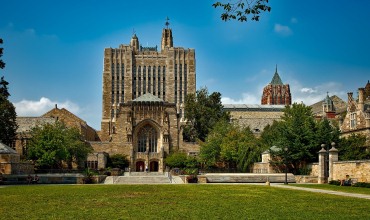Реферат на тему:
The Trojan War
The Fairest of All
Early Greece is probably most famous for a long and bloody war. The war
took place between Greece and the city of Troy. It was called the Trojan
War. Here is how it began. Up on Mount Olympus, the gods and goddesses
were having a party. A rather mean goddess named Eris (EAR -iss) was not
asked to the party. This made her very angry. So Eris waited outside the
party with a golden apple in her hand. On it she wrote, “For the
fairest.” She threw the apple into the middle of the party.
Each goddess believed she was the fairest. All of them wanted the apple.
The gods at the party decided that one of three goddesses must be the
fairest. These were Hera, Athena, and Aphrodite. Hera was queen of the
gods and the wife of Zeus. Athena was the goddess of wisdom and the
daughter of Zeus. Aphrodite was the goddess of love and beauty.
“You pick among us,” the three goddesses begged Zeus. “Who is the
fairest of us all?”
“You are all beautiful,” said Zeus. “I will not choose. There is a fine
young man named Paris. He is the son of King Priam (PRY-um) of Troy. I
shall send the three of you to him. He will decide who should get the
golden apple.”
Paris was off in the hills keeping his fathers sheep. The King had sent
him there because the gods had told him that Troy would be destroyed
because of Paris. The king felt it was the best to send his son away.
What a surprise for Paris when three goddesses appeared before him! They
did not ask him who was the fairest. Rather, each goddess told him what
she would give him if he picked her.
“I will give you all of Europe and Asia,” promised Hera, the queen of
the gods.
“I will give you the mind to win a war someday!” promised Athena, the
goddess of wisdom.
“I will give you the fairest woman in the world!” promised Aphrodite,
the goddess of love.
Paris did not want power or wisdom. He wanted love. He gave the golden
apple to Aphrodite.
“The fairest woman is Helen,” she said. “She is married to Menelaus
(Men-uh-LAY-us), the King of the Greek city of Sparta.”
Paris headed for Sparta. He did not know then about a promise made among
the men of Greece.
The promise came about when Helen’s father was trying to choose her
husband. She was so beautiful that her father was afraid. If he chose
one man, the others would be angry. They might go to war against the one
he chose.
So all the men made a promise. All of them would help Helens husband if
anyone tried to steal her away. Helen married Menelaus. The other men
kept their promise. They would help him if he needed it.
When Paris got to Sparta, he went to visit Helen and Menelaus. They
brought him into their home and were very nice to him. Then Menelaus had
to go away. While he was gone, Paris and Helen fell in love and ran away
together.
When Menelaus returned, his beautiful wife was gone. He called upon the
men of Greece to help him get her back. They all set off for Troy to
find Paris and bring Helen home. Paris had no idea what his city would
have to face. His love for Helen would start a war.
Achilles’ Heel
The war between Troy and Greece began. There were battles on land and
sea. Both sides fought so hard that the war went on for 10 years. Yet in
all this time, the Greeks could not get into the city of Troy. A high
wall ran all around the city, and the Greeks could not get by it.
The great hero of the Greek army was Achilles (uh-KILL-eez). He was
strong and brave, and everyone knew it. He had won many battles for the
Greeks.
As strong as he was, however, Achilles had a weak spot. When he was a
baby, his mother dipped him into a magic river. The water from this
river would keep Achilles safe from harm. However, when his mother
dipped him, she held him by the place just above his right heel. The
magic water did not touch that spot. Achilles’ heel was the one place he
could be hurt.
At Troy, Achilles had fought one-on-one against Hector, the son of King
Priam of Troy and the brother of Paris. But these fights were always
outside the wall. Even Achilles could not get past.
One last battle took place between Achilles and Hector. It was a sword
fight. Achilles knocked Hector’s sword out of his hands. Then he chased
Hector all around the city wall. At last, he caught Hector and killed
him. Then Achilles tied Hector’s body behind his chariot. He ordered his
horses to run. They dragged Hector’s body behind the chariot in the dirt
and dust.
King Priam was very sad to hear of Hector’s death. He begged for the
return of his son’s body. What harm could there be in doing that?
Achilles said to himself. So he brought Hector’s body to the city gate
of Troy. He did not know that Paris was waiting for him at the gate.
Achilles lifted Hector’s body from the chariot. Just then, Paris shot an
arrow at Achilles. The arrow hit Achilles in his right heel. This, of
course, was his weak spot. The arrow killed him right away.
The Wooden Horse
After Achilles died, another great hero rose up in the Greek army. His
name was Odysseus (oh-DISS-e-us). He was king of Ithaca, but he fought
like everyone else. “There is only one way we can win over the Trojans,”
said Odysseus. “We must get past the gate and into the city.”
“But how?” the other men wondered. “We can’t get in the gate. And we
can’t break down the wall.”
Odysseus asked Athena, the goddess of wisdom, what they should do.
Athena told him a poem:
Could is should,
Should is would,
Would is wood, of course.
What began with an apple
Must end with a horse.
What could this mean? Odysseus wondered. He knew about the golden apple
that had started the Trojan War. But what was this about a horse? Then
it came to him. He must build a wooden horse!
Odysseus worked out a plan. He and his men built a huge wooden horse. It
was so big that 20 men could fit inside it. There was a trap door in the
belly of the horse. There were wheels under its feet.
The next morning, the Trojans looked over their wall. There were no
Greeks in sight. Where could they be? The Trojans believed the war must
be over. They believed the Greeks had given up and gone home.
Then the Trojans saw the wooden horse outside the gate. They believed
the Greeks were leaving them a gift of peace.
“Beware of Greeks bearing gifts,” King Priam’s helper said. “They could
be playing a trick.”
But King Priam opened the gate. A group of men rolled the horse into the
city. There it sat as the Trojans went to sleep. They slept well,
believing they had won the war and peace had come at last.
But in the middle of the night, the trap door in the horse opened. Out
came the 20 Greeks. Among them were Odysseus and Menelaus. They all ran
toward the city gate and opened it wide.
The rest of the Greek army had not really gone home. They had sailed in
their boats, just out of sight of Troy.
During the night they sailed back and waited on land. When the gate
opened, the army rushed into Troy.
The Trojans did not have a chance. The Greeks killed everyone in sight.
Then they set the city on fire. Soon, there was nothing left of Troy.
Some say Paris was killed in this last battle of the war. Others say he
got away and lived out the rest of his days with another name in another
land.
Aphrodite, the goddess of love and beauty, came to Troy. She had helped
start the war. Now she helped Menelaus get his wife, Helen, out of Troy.
The two of them went back to Sparta. For the rest of their days, they
lived a happy life as king and queen.
After 10 years, the Trojan War was over. Odysseus and the rest of the
Greek army began their long trip home.
Нашли опечатку? Выделите и нажмите CTRL+Enter




